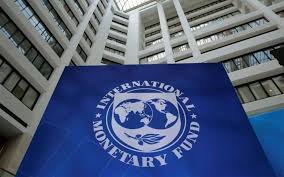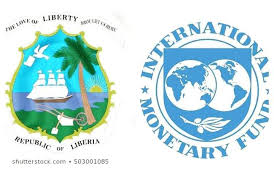
PRESS RELEASE
Monrovia- The Executive Board of the International Monetary Fund (IMF) has approved the disbursement of SDR 36.2 million or US$ 50 million or 14 percent of Liberia’s quota to the IMF, under the Rapid Credit Facility (RCF) to help Liberia address the emergency financing needs stemming from the COVID-19 pandemic, a press release said at the weekend.
The June 5, 2020 press release says in approving disbursement, Directors noted that the pandemic poses significant risks to Liberia’s population and threatens to derail the country’s reform path. Directors underscored the need for the accountable and transparent use of COVID-19 related funds to ensure that much-needed relief reaches the targeted population and help strengthen donors’ confidence. They welcomed Liberia’s strong commitment to macroeconomic and institutional reforms, especially its commitment to reforms under the External Credit Facility, which was approved by the Board of the IMF on 11 December 2019.
Directors encouraged the country to remain on the path of reforms as a means of engendering greater trust from the international financial community.
They welcomed Government’s recent decision to publish weekly spending reports and procurement contracts and subsequently audit those expenses. They recognized that the Liberian authorities have made significant strides to strengthen public financial management and urged authorities to resume the reform agenda, under the Extended Credit Facility (ECF) arrangement, once the pandemic abates.
They view the ECF as critical to restoring macroeconomic stability and durable growth. Directors welcomed the authorities’ commitment to fiscal consolidation, including domestic revenue mobilization and expenditure re-prioritization. In this vein, they took positive note of the recent passage of instruments to increase excise on fuel as well as well as the authorities’ commitment to centralize revenues accruing to state-owned enterprises (SOEs) into the consolidated revenue account.
Directors welcomed the swift and decisive measures adopted by the authorities to assuage the economic impact of the pandemic including to increase resource allocation for food security and protect vulnerable market women and petty traders.
They welcomed recent steps to restore confidence in the banking system, including the adoption of an interest-rate-based monetary policy framework and the hiring of a firm to ensure the adequate supply of Liberian dollar banknotes to avoid shortages during peak seasons.
The Government is presently in negotiation with the IMF on a second found of disbursement under the RCF to support the FY 2020/21 National Budget, and this is a critical part of the passage of the FY 2020/21 National Budget, which is currently under development. Key items in the new budget will revolve around funds for the settlement of domestic arrears, which the Government of Liberia has not been servicing due to both funding and domestic debt validation challenges. The servicing of these debts in next year’s budget will provide critically needed stimulus to the COVID-impacted economy, while strengthening Government’s credibility to meet payment obligations to vendors and suppliers. Budgetary support for economic recovery is also under consideration.
President Weah has directed that the new budget focus spending to the maximal extent possible on the critical aspects of the economy to sustain recovery, which has been slowed by the onset of COVID-19.
Both the Government and the IMF are expected to undertake the first review under the ECF, delayed by COVID19. Under the ECF and prior to COVID-19, 2020 growth was projected to be close to 1 percent but has now been revised to a negative growth on account of COVID-19, a situation that is common across sub-Saharan Africa, where the World Bank has projected average growth rate to range between -2 to -5 percent due to COVID-19.
Liberia’s performance under the ECF and the country’s commitment to unprecedented macroeconomic and institutional reforms are winning international commendations. A clear indication of these successes is reflected in the recent decision by the Board of the Central Bank of Liberia to reduce the policy rate from 30 percent to 25 percent, mirroring the reduction in the inflation rate, which the policy rate is set to target. Also, the passing of three out of four of the IMF’s Quantitative Performance Criteria (QPC) on the fiscal side, especially the criteria on limiting the primary deficit to less the 2.5 percent of GDP, is particularly welcoming. A deficit of less than three percent is one of the monetary convergence criteria for ECOWAS countries aiming to enter a monetary union, and Liberia is clearly on the path to beating this target by end of current fiscal year.
The Government extends its profound thanks to the Executive Directors for their appreciation of ongoing reforms in Liberia under the leadership of President Weah and pledges to do more to deepen reforms that are needed to transform the country.
The Government thanks the IMF and other international partners for the massive show of support in the wake of COVID-19 and promises full transparency and accountability in the use of COVID-19 resources. It informs partners and the general public that a dashboard on COVID-19 resources will soon be made publicly available.
The public is invited to follow the release of all official documents pertaining to the RCF and preliminary assessments on the ECF which will soon be made available on the IMF website.
Signed_____________________
Eugene Lenn Nagbe
Minister

